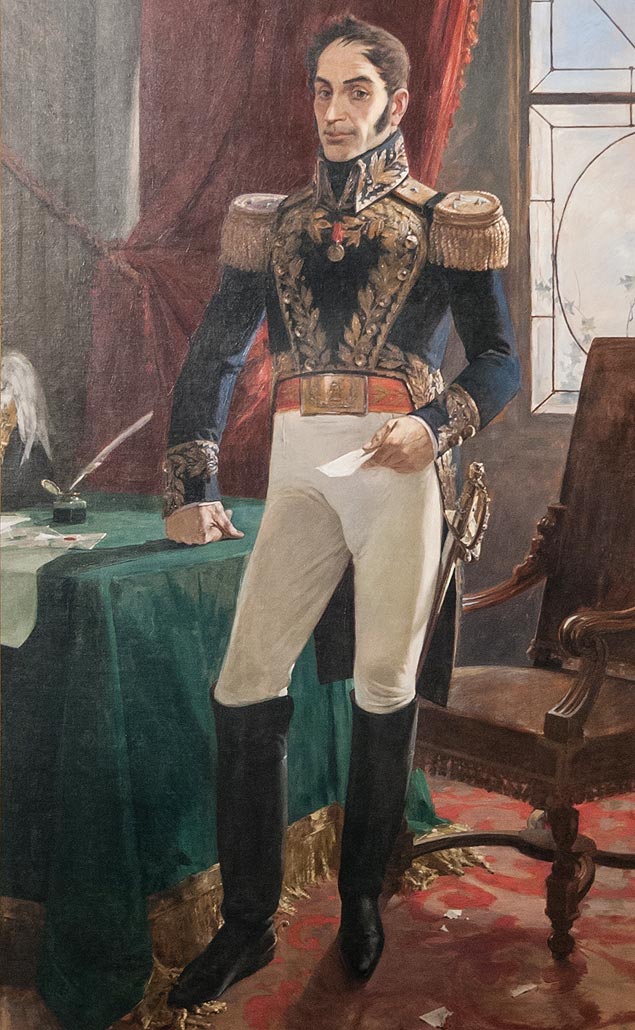Latest Photo Galleries
Brazilian Markets
13h15 Bovespa |
-0,22% | 123.895 |
16h43 Gold |
0,00% | 117 |
13h23 Dollar |
+0,35% | 5,2608 |
16h30 Euro |
+0,49% | 2,65250 |
ADVERTISING
Biography Reviews Trajectory of Venezuela's Simon Bolívar
08/31/2015 - 08h59
Advertising
SYLVIA COLOMBO
FROM SÃO PAULO
He was 1.65 m tall and weighed 60 kilos; he had a "small chest" and "impossibly thin legs." His apparent frailty, however, disappeared when Simon Bolívar (1783-1830) started to talk, with "such magnetism that made even the most robust men seem small."
During 11 years, this highly educated man, who could quote Rousseau in French and Julius Cesar in Latin, lead an unprecedented military campaign in Latin America.
Facing the humidity of the jungles, the Caribbean heat and the ice of the Andes mountains, Bolívar played a crucial role in freeing the territories that would become Colombia, Venezuela, Panamá, Ecuador, Peru and Bolivia from the dominion of Spain.
In "Bolívar - O Libertador da América" ("Bolívar: American Liberator"), recently launched in Brazil by Três Estrelas, a publishing house of Grupo Folha, Peruvian-American historian and journalist Marie Arana, 65, explains how the context in which the so-called "Liberator" was born and his unique personality created the utopia of a unified and independent Latin America - an utopia which is revisited to this day.
Filled with drama and detail, the book also describes how the dream was dissolved when Bolívar was still alive, eventually making him a sad and disappointed hero.
Arana narrates how Bolívar grew up in a "criolla" family (of European descent, but born in Latin America) in Caracas, Venezuela, when the local population was already unhappy with the Spanish control.
His father was one of the richest men in the country, and the young Bolívar would inherit houses in the city and in the countryside, farmlands, seaports, mines and slaves.
Bolívar had a rebellious behavior and spent his teenage years playing with the children of slaves and saw Hipólita, a slave and his wet nurse, destined to look after him, as a second mother.
After the countries became independent, Bolívar was filled with sadness and anger as he saw the political division made by those who fought for him.
He tried to prevent the fragmentation of the dream but it was fruitless. He then began to defend more authoritarian attitudes and say that "serving a revolution was like plowing in the sea."
He died of tuberculosis, disillusioned, at the age of 47 in Santa Marta, on the coast of Colombia.
He would become even more frustrated, however, if he knew that his legacy would be misinterpreted in the future - as it was.
"From Fidel Castro to Pinochet, his ideas were distorted by leftists and rightists. Bolívar would never agree with the interpretation made by the former president of Venezuela, Hugo Chávez, and his followers. Those who use the term 'Bolivarian' to speak of Latin American socialism have no idea of what they are saying. The debate on Bolívar's ideas has been marked by ignorance."
Translated by THOMAS MUELLO
Read the article in the original language
| Divulgação | ||
 |
||
| Venezuela's Simon Bolívar |



